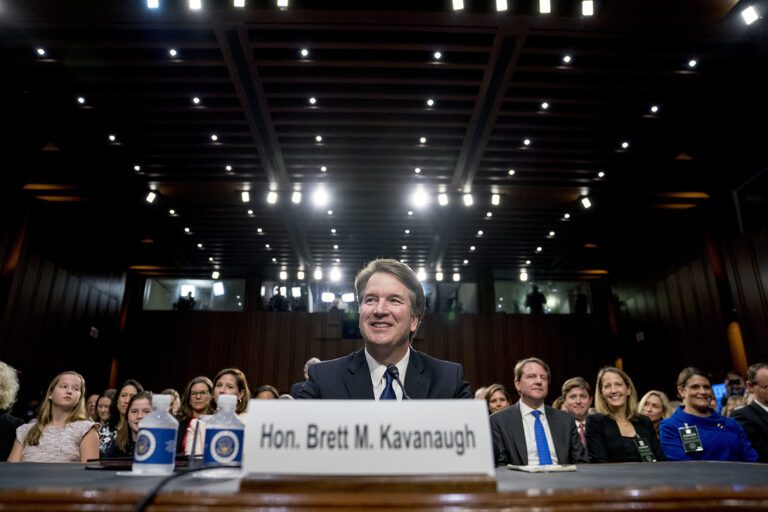Nominating someone to the Supreme Court is one of the most important actions a US president can take. That's because, according to the Constitution, Supreme Court justices have lifetime tenure unless they resign, retire or are removed from office. This differs from most other democracies, where high court judges either have mandatory retirement ages or strict term limits.
So, why not in the United States?
Northeastern law professor Michael Meltsner, who specializes in the Supreme Court, said the intent was to insulate judges from partisan politics.
“This was put into the Constitution to preserve the complete independence of the judiciary,” said Meltsner, the George J. and Kathleen Waters Matthews. “Once a justice is confirmed and takes a seat in court, it belongs to no one.”
There should be a healthy debate taking into account the pros and cons, and hopefully in a non-political way.
Michael Meltsner, Professor of Law, on whether Supreme Court justices should have life tenure
That leaves Supreme Court justices free to rule based on the law rather than political favor, Meltsner said.
Much has changed since the 18th century. When the Constitution was written, life expectancy for white males (the only population allowed to hold a seat on the Supreme Court at the time) fluctuated just under 50 years. In 2016 (the most recent data available from the World Bank), average life expectancy in the US was 79 years old, almost three decades longer.
That fact alone may be enough to reconsider the judges' lifetime appointments, Meltsner said.
“It's absolutely something to consider,” he said. “There should be a healthy debate in which the pros and cons are considered, and hopefully in a non-political way.”
Several technical problems would have to be resolved in order to change the nature of the Supreme Court's terms. Congress should find a way to stagger term limits so that a president “doesn't get to dominate the court,” Meltsner said. It should also establish a structure for replacing judges who resign mid-term.
“The main policy issue here is to ensure that any new process does not undermine judicial independence,” he said.
Again, changing the tenure of Supreme Court justices would require amending the Constitution, which is “not an easy task,” Meltsner said.



